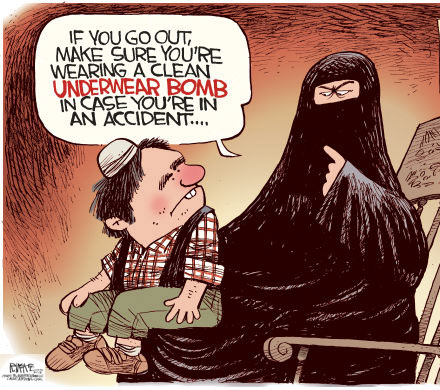
On Thursday, Australian authorities claimed they thwarted a plot by supporters of the Islamic State to grab random people off the street and then behead the captured citizens on videotape.
Australian Prime Minister
Baryalei is credited with recruiting at least two fellow Australians to the cause. One, Khaled Sharrouf, infamously tweeted pictures of himself executing prisoners in
So here's the troubling question: Why did Baryalei bother making the phone calls?
We've been hearing for months that the Islamic State is brilliant at social media. The terror group can reach out to supporters, sympathizers and assassins all around the world with a single tweet,
If the terror group wants Muslims in
Now, the fact that the Islamic State didn't do this is a little encouraging. It suggests that it's either unwilling to cross that Rubicon quite yet or it has reason to believe that few people would follow through on the public command, making it look weak. That's all to the good.
But there's too much potential bad news here as well.
For starters, it's hardly as if such people do not exist in the West. The fact that, collectively, thousands of Europeans, Canadians and Americans have gone to
Besides, there are probably new potential recruits to be enlisted as well. Just this week,
Perhaps most disturbing about all of this is that the Islamic State doesn't seem that interested in blowing up planes. Al-Qaeda always had an odd obsession with destroying aircraft and committing dramatic acts of murder. This fixation had an advantage: Such elaborate plots were easier to be foiled by law enforcement and intelligence agencies. The Islamic State has discovered that beheadings -- which are cheap and relatively easy to conduct -- have a huge impact in the West. They are also horrifyingly empowering to the losers who support the cult. It takes homework to build an IED. Beheadings require very little instruction.
How to stop the equivalent of flash-mob terrorism no doubt keeps Western officials awake at night, particularly when there's so much potential to respond in ways that further radicalize some Muslims. So far, the so-called "anti-Muslim backlash" in the U.S. has largely been a myth. But one can imagine many decent and peaceful Muslims paying a terrible price for the crimes of others if the Islamic State decided to cut out the middlemen handlers and recruiters like, allegedly, Baryalei and Elfgeeh
One can also imagine radicals propagandizing counterterror operations into evidence of anti-Muslim bigotry -- a sentiment which in turn would help with the recruitment effort. (
Of course, the challenge of do-it-yourself jihadism has been with us for quite a while. But, like everything else, it seems to be changing in the era of Twitter.
Comment by clicking here.
Jonah Goldberg is a fellow at the American Enterprise Institute and editor-at-large of National Review Online.



 Contact The Editor
Contact The Editor
 Articles By This Author
Articles By This Author